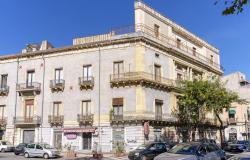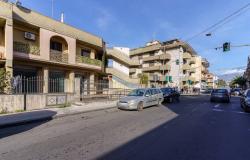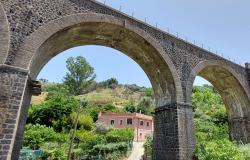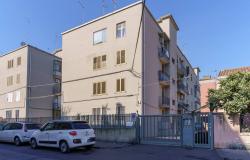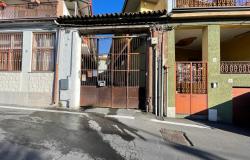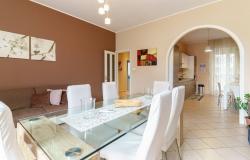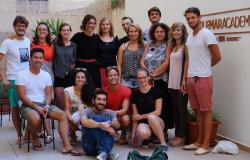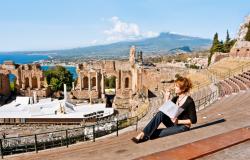Words by Pat Eggleton
The doctors
In an Italian hospital all doctors wear white coats and there is no godlike consultant figure to scare staff and patients alike. The staffing structure is non-hierarchical and, though of course there is a specialist “primario” [leader or chief] in every department you would have a hard time picking him or her out from the other members of the team by his or her appearance. [The British consultant is immediately recognisable by his suit.] As a patient, I found this rather refreshing, because it means that you can ask questions and expect an honest and knowledgeable answer from any doctor on the team.
No one talked to me in that hospital “code” so beloved of some medical personnel in Britain and when I did ask questions they were answered. When I had tests I asked for and was given the results immediately, clearly and honestly. This was much less alarming than the “secretive” way in which some hospitals in Britain like to work.
The Italian way of working
The Italian way of working may seem slow at first, but after a few days I began to understand the pattern: I was being methodically checked over, quite literally from top to bottom, and there was no relevant test that I didn’t have. The diagnosticians were using a process of ruling things out and, calmly, kindly and methodically, they discovered the cause of the problem. I shall be eternally grateful for their thoroughness, honesty and professionalism.
Filling the time
Waiting for a diagnosis could prove rather taxing, though, if you are not a reader, knitter or player of patience for there was no day room or other change of scene available for mobile patients. There were no armchairs by the beds either, so sitting out of bed was not particularly comfortable. However, no one but me seemed to mind the hard little chairs that were provided and most of my fellow-patients seemed content to stay in bed anyway. They did not read, which surprised me as I had come armed with a library, but happily stared into space for most of the long days. I suppose they did get a true rest whilst I was probably suffering from the British “you’ve-got-to-be-active” disease.
Visitors
Visiting times livened things up no end and the first visitors would arrive between 07.30 and 08.30. They would bring in breakfast treats and help their hospitalised friend or relative to wash, if necessary. Largely the same group of people came back at lunchtime and then again in the evening, accompanied by extended family. Only the Italians could turn hospital visiting time into a festa, with children bouncing on beds, the women gossiping in the wards and the men gossiping in the corridors.
Food
 Several books about settling in Italy have implied that if you are hospitalised, you will starve unless friends or relatives bring in food. This is definitely not the case as perfectly adequate food is provided, except at breakfast. I will never understand why the Italians, who arguably have the best food in the world, make such a mishmash of breakfast. In the Modica Hospital a horrible gruel-like substance masquerading as “tea” was served and into this evil-looking liquid people contentedly dunked their morning supply of biscuits.
Several books about settling in Italy have implied that if you are hospitalised, you will starve unless friends or relatives bring in food. This is definitely not the case as perfectly adequate food is provided, except at breakfast. I will never understand why the Italians, who arguably have the best food in the world, make such a mishmash of breakfast. In the Modica Hospital a horrible gruel-like substance masquerading as “tea” was served and into this evil-looking liquid people contentedly dunked their morning supply of biscuits.
Lunch was very good and there was always a choice of dishes whilst for supper a nourishing soup was served with a portion of fruit that you could choose to have “cooked” to soften it. And “cooked” the whole fruit was, not stewed, as you might imagine. I enjoyed the soup but I must admit I was grateful one evening when a friend smuggled in some arancini!
Nurses would deliver, but not take away, food and cutlery so you had to dispose of used plastic plates and cutlery yourself or ask a visitor to do it.
One-up-woman-ship
Every day each patient was given a fresh bottle of mineral water but not a receptacle to drink it from. You were expected to take in your own plastic beakers. Some of the women went one better than that, having brought from home their best cutlery and plate plus beautifully embroidered tray cloths, which they would place on their little tables with undisguised pride at meal times.
Being discharged
A British hospital will chuck you out at the earliest possible moment, such is the shortage of beds, but in Modica doctors are not so keen to send their charges on their way: on the contrary, mine looked amazed and rather hurt when I expressed my eagerness to get back to my dog.
All in all, then, my hospital stay was a very interesting experience and yes, it was good for my health. I have had excellent follow-up treatment and medication and I feel better than I have for decades.

